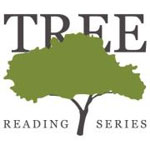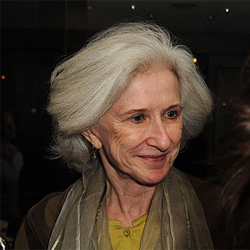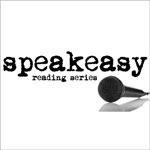The Art Bar is recognized as Canada’s longest running poetry-only, weekly reading series. Since 1991, it has featured both emerging and established poets from across Canada and occasionally from abroad. It has become a hub for the poetry community, and entry point for new voices, a place for people to enjoy one of the oldest arts.
This week’s online offering features Marsha Barber and David C. Brydges, hosted by Rosa Arlotto.
Learn more here.
Join the Lannan Center for Poetics and Social Practice for an evening with poets Javier Zamora and Natalie Scenters-Zapico. This event will be moderated by Carolyn Forché.
Learn more here.
Running since May 9, 1980, the Tree Reading Series (Tree) is one of Canada’s longest-running literary events and an essential part of Ottawa’s vibrant literary community. Tree is a non-profit organization that supports established and emerging writers from Ottawa and across Canada by offering a supportive public venue for writers to present their own work and to benefit from exposure to the work of other writers. In providing this service, Tree hopes to inspire and sustain the development of the literary community in Ottawa and to promote Ottawa as an important community for Canadian literary arts.
The evening’s online events feature a workshop hosted by Eunice Andrada, followed by an open mic and readings by Andrada and Jody Chan.
Learn more here.
Translation as a material, interpretive practice, plurilingual translators, feminist investigations, queer embodiments, rebellious poetics … Directed and provoked by Oana Avasilichioaei, this choral mise en translation stages a live reading and conversation between three poet-scholar translators voicing recent translation experiments: Elena Basile’s English-French-German Elena Basile’s English-French-Italian diffractions and theorizations; Erín Moure’s Frenglish-Guaraní transformation of Brazilian writer Wilson Bueno; and K.B. Thors’s English reimagining of Icelandic poet Kristín Svava Tómasdóttir.
Learn more here.
Parallel Careers is a monthly podcast about the dual lives of writers who teach.
Few writers make their living from publication alone; many fill the gaps with teaching in both academic and community settings. Much of the work is precarious, and there are few opportunities for professional development.
Parallel Careers features writers with diverse practices and points of view—writers who are at the top of their game in both craft and pedagogy. Tune in to hear the big ideas and practical tips they take into their classrooms. Take their insights into your own class or craft.
This episode is on creative writing in the Canadian classroom, with Lamees Al Ethari.
Learn more here.
The University of Toronto’s Hart House Literary Contest is an annual literary tradition that gives emerging writers of the Hart House community an opportunity to have their work professionally reviewed by a panel of judges.
This year’s poetry judges are Sanna Wani, Bänoo Zan and Adam Sol.
Learn more here.
Help Alaska Quarterly Review (AQR) reach new literary milestones. Please mark your calendars for Pièces de Résistance, an extraordinary benefit series celebrating AQR’s 40th anniversary. Join the publication for 21 free, live online readings and conversations, featuring 58 exceptional new, emerging, and established poets and writers who have appeared in AQR. Pièces de Résistance runs from October 4, 2020 to May 2, 2021 hosted by the Anchorage Museum and moderated by author Heather Lende and AQR Co-Founder and Editor Ronald Spatz.
While all of the Pièces de Résistance events are free, consider making a tax-exempt donation to support AQR through our 501c3 affiliate, the Center for the Narrative & Lyric Arts.
This event features readings by Matthew Zapruder, Jill Osier and Dilruba Ahmed.
Learn more here.
Poetry London is delighted to announce the readers for its upcoming 17th season!
Their three fall events will be video readings launched on their YouTube page; they hope that public health conditions will allow them to return to live events in 2021.
This event features poets Irfan Ali and Shane Rhodes.
Learn more here.
The Speakeasy Reading Series is a monthly event hosted by the Guelph Creative Writing MFA Program, featuring readings from students, alumni, and community readers. January’s featured readers are:
Hoa Nguyen, Jael Richardson, Tyler J Sloane, Matt W Cook, K Ho and Anna Lee-Popham.
Learn more here.






